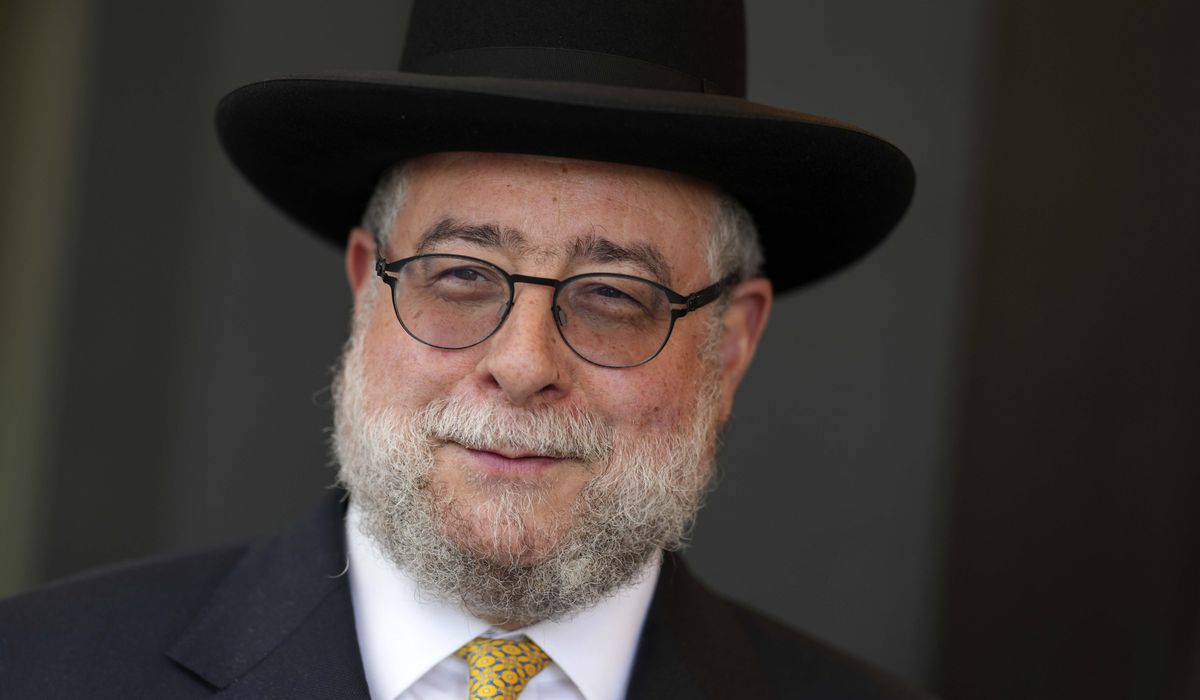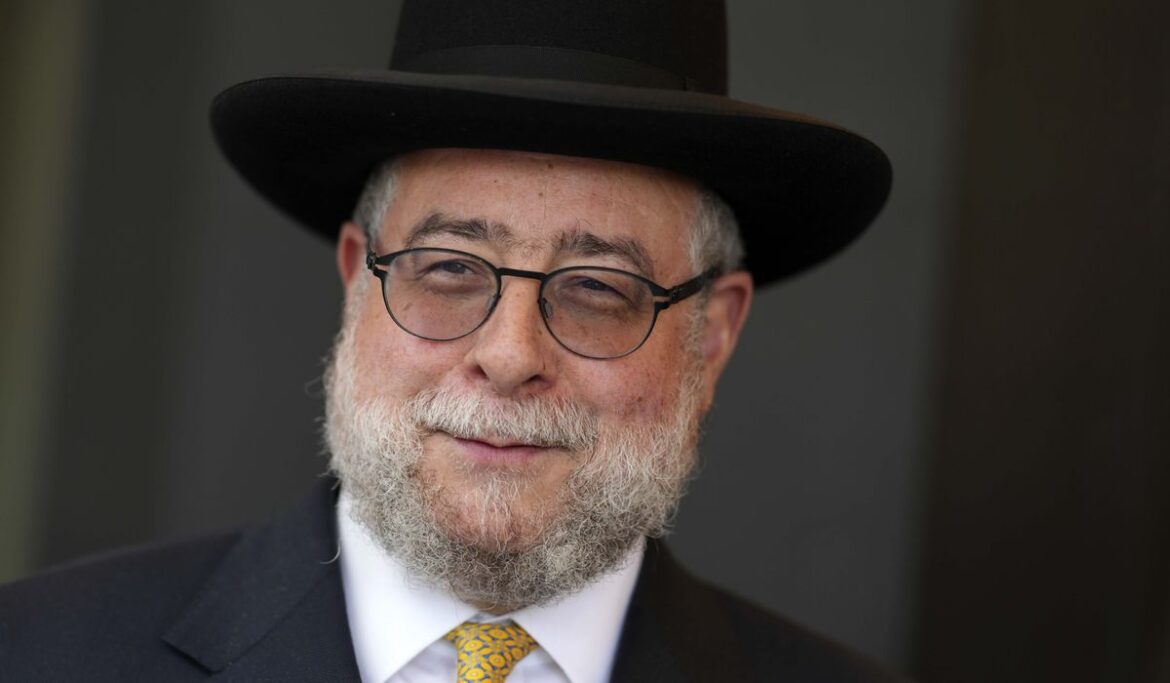
Moscow’s chief rabbi has fled the country, his family said Tuesday, after being “put under pressure by authorities” to back Russia’s invasion of Ukraine.
Rabbi Pinchas Goldschmidt and his wife Dara “refused” to back the war, according to a Twitter posting by New York-based journalist Avital Chizhik-Goldschmidt, who is married to Rabbi Benjamin Goldschmidt, one of the Moscow cleric’s seven children.
“They flew to Hungary two weeks after the Russian invasion of Ukraine. They are now in exile from the community they loved, built & raised their children in, over 33 years — though he was re-elected today by the [Moscow Jewish] community,” she added, noting separately “the pain & fear in our family the last few months is beyond words.”
Rabbi Goldschmidt, who is also president of the Conference of European Rabbis, has led the Moscow Choral Synagogue for the past 33 years, i24news.tv, an Israeli website, reported Tuesday.
The Moscow-based cleric first traveled to areas in Europe where Jewish refugees from Ukraine were being cared for, reports indicate. He then went to Israel both for the annual Passover celebration and also to care for his ailing father. The Jerusalem Post reported Rabbi Goldschmidt released a statement saying in part that he would “continue to serve as chairman of the Rabbinical Court of the Commonwealth of Independent States and the Baltic States,” but that he “transferred” his responsibilities to his assistant because he is unsure of when he will return to Russia.
The Washington Times has contacted Mrs. Chizhik-Goldschmidt for additional comment.
SEE ALSO: Baylor professor in op-ed calls for criminal probes of Southern Baptist sex abuse
The situation for Russian clergy of various faiths has become complicated since Russian President Vladimir Putin ordered’s order to invade Ukraine as a “special operation.”
In March, hundreds of Russian Orthodox clerics signed a letter protesting church leader Patriarch Kirill’s backing of the war — which has included blessings on Russian weapons used in the conflict — even though such opposition may put them in jeopardy of violating the country’s bans on protesting the conflict.
“We, the priests and deacons of the Russian Orthodox Church, each in our own name, appeal to everyone on whom the cessation of the fratricidal war in Ukraine depends, with a call for reconciliation and an immediate ceasefire,” an automated translation of the letter read.





